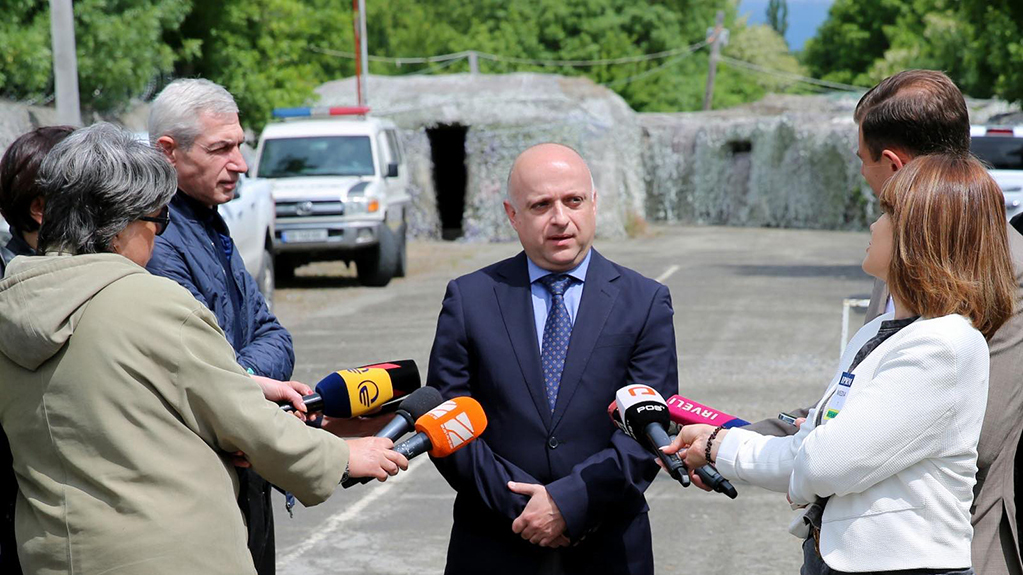The Georgian State Security Service has not confirmed the information spread by the media regarding the arrest of students in occupied Abkhazia, particularly in Gali, who were allegedly involved in a protest against the Russian law in Tbilisi.
News
On May 15, Mtavari Arkhi reported that representatives of the occupation regime had taken the young people from their homes. Family members of the detainees were also present during the interviews. The young people are students from various universities in Tbilisi.
"I learned that the students who took part in the protests in Zugdidi and Tbilisi were met by three cars as soon as they returned and crossed the occupation dividing line. They were all taken for questioning.
Furthermore, according to my information, these 13 students saw their posts on Facebook, including photos from the rally. Not only are the students affected, but their parents are also facing significant pressure and aggression," stated Tamar Belkania, Deputy Mayor of Tsalenjikha Municipality, in an interview with Georgian News on the evening of May 15.
Irakli Antadze, Deputy Director of the Information and Analytical Department of SSS, stated that the detention of students is not confirmed based on the information available to them.
"Different quantitative data are available. The hotline was activated by the central government, and we inquired about the mentioned fact. At this stage, they have not confirmed the fact of the arrest. The hotline will be activated again during the day. The information was verified by other means at our disposal and is not confirmed at this stage," Antadze said.
Another meeting of the Incident Prevention and Response Mechanism was held in Ergneti village today. The main topic of the meeting was the release of persons illegally detained by the Tskhinvali regime.
"Since the previous meeting until now [March, April, May], 9 cases of illegal detention have been recorded. As of today, 7 of our fellow citizens are in illegal detention. In other cases, using the existing mechanisms of negotiations, it was possible for the illegally detained individuals to return to their families. However, we have individuals who have been illegally detained for long periods of time. The only thing that can relieve the tense psychological condition of the local indigenous population along the occupation line and in its vicinity is the initiative of a zero-detention policy, which is proposed by us, so that they can carry out their daily activities without fear," Antadze said before the meeting.
SSS data indicates that 15 cases of illegal border crossing were recorded in the last three months: 3 in March, 9 in April, and 3 in May. "The area of the illegal activity is the municipalities of Gori and Kareli. Previously, illegally built so-called installations, such as fences and barbed wire, were erected or repaired. Additionally, surveillance cameras were updated.
Regarding the murder of Tamaz Ginturi, unfortunately, this remains a pressing issue on our agenda. We will once again raise this matter and inquire whether legal procedures have been initiated against those involved in the murder, and we will hear their position. As for the case of Ramaz Begheluri, who is illegally detained and has health problems, this is known to the participants from Tskhinvali, as we have shared medical documentation. There are instances where, after sharing medical documentation, medical data is taken into account. We hope that in the case of Ramaz Begheluri, as well as the other 6 illegally detained individuals, we will be able to have some influence, together with our international partners, so that they can return to their families," Antadze said.















